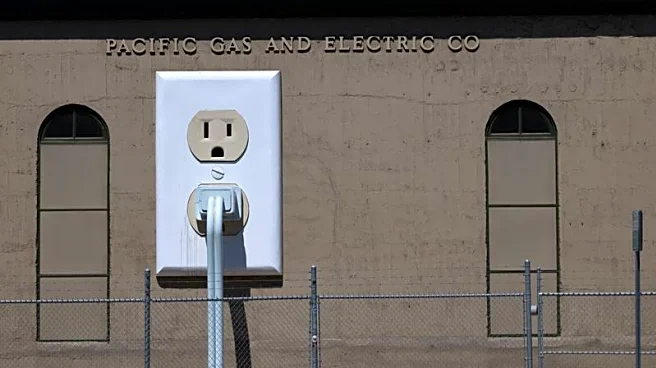What's Happening?
Oil prices have remained relatively stable despite OPEC+'s announcement to pause output increases in the first quarter of next year. Brent crude futures and U.S. West Texas Intermediate crude saw minimal changes, reflecting market concerns over a potential
supply glut. The decision to pause output increases follows a small planned increase in December and comes amid weak factory data in Asia, which has contributed to fears of oversupply. Analysts suggest that while the halt in quotas does not affect the projected surplus, it indicates OPEC+'s continued focus on price stability.
Why It's Important?
The stability in oil prices despite OPEC+'s decision highlights the complex dynamics of the global oil market, where supply concerns are balanced against demand uncertainties. The move is crucial for oil-producing countries and companies as it aims to prevent a significant drop in prices that could impact revenues. The decision also underscores the importance of strategic production management in maintaining market equilibrium. For consumers, stable oil prices could mean steady fuel costs, while for producers, it ensures continued profitability in a volatile market.
What's Next?
The market will be closely monitoring geopolitical developments, particularly in Russia, where U.S. sanctions and recent attacks on energy infrastructure could affect supply. Additionally, the response from major oil-consuming regions, such as Asia, will be critical in determining future demand trends. OPEC+ may need to adjust its strategy if market conditions shift, with potential implications for global energy policies and economic stability.
















